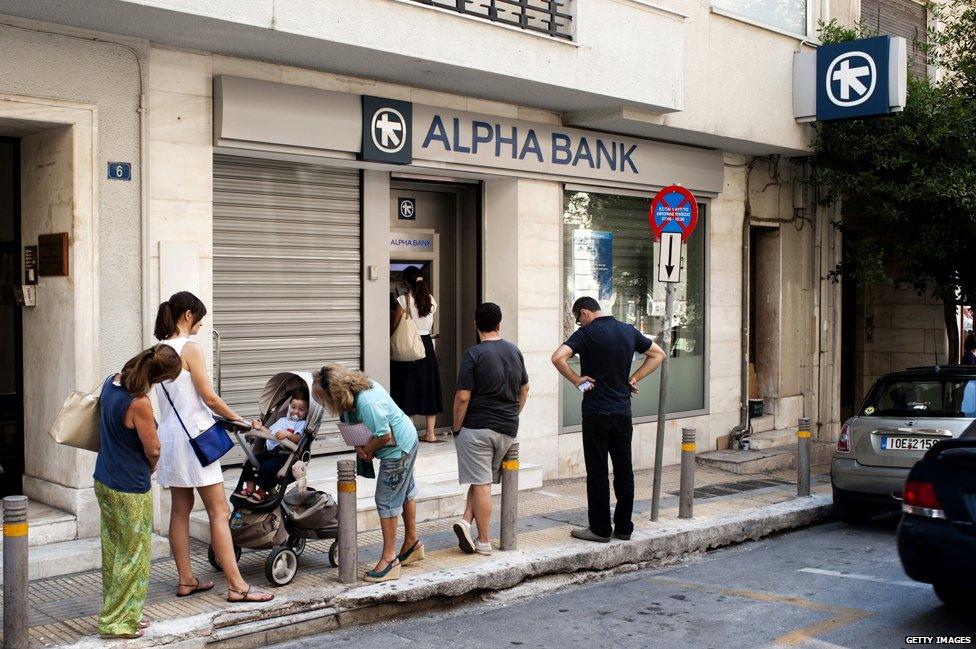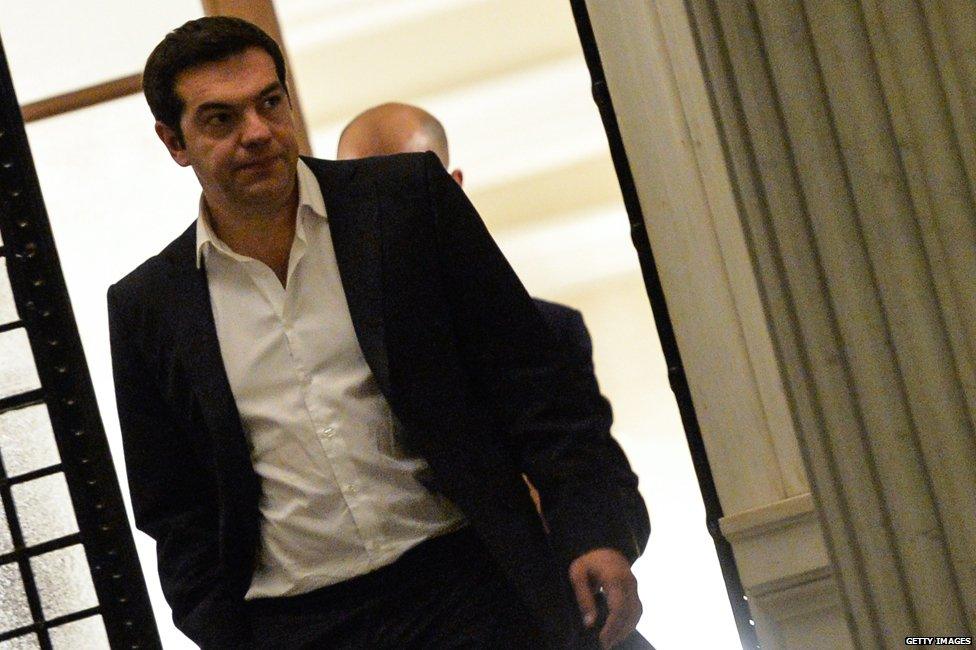Will German parliament back Greek deal savaged by IMF?
- Published
- comments

So two more questions about the ramifications of the IMF's trenchant opposition to the current planned structure of a Greek rescue.
First, will the Bundestag, the German parliament, back the proposed bailout, absent support from the IMF?
The behaviour of Mrs Merkel, in forcing the Greek Prime Minister Alexis Tsipras against his wishes to accept future IMF involvement in the bailout, suggests she believes IMF endorsement and involvement is the sine qua non of Bundestag approval.
And if the Bundestag says "Nein", we are back in the territory of Greece careering towards the euro door marked exit and penury.
Second, if the IMF is saying - as it effectively does in its debt sustainability update - that Greece is insolvent without a massive debt write-off, and a write-off that eurozone governments show no sign of embracing, can the European Central Bank in good conscience increase emergency lending to banks, or Emergency Liquidity Assistance?
Now Greek banks have been led to believe by the Bank of Greece that the ECB would increase ELA by around 2bn euros either today or tomorrow.
If this happens, it will be a significant fillip to the Greek economy.

Alexis Tsipras leaves his office after a day of talks in Athens
Because the banks are planning to re-open their doors in those circumstances - either tomorrow (now unlikely) or Monday.
It would not be banking and business as usual. But some of the economically devastating effects of capital controls - most of which would be retained - would be limited.
Here is what the banks will do if the ECB provides just a bit more emergency lending.
First, the government committee currently approving - or more accurately not approving - requests by businesses for the banks to finance imports would have its powers transferred back to the banks.
Subject to rules, the banks would then start to provide finance again to companies wanting to import goods and raw materials deemed vital to Greece's economic interests.
Which means the twin dangers would recede of the economy grinding to a halt for want of imports and of a humanitarian crisis caused by a shortage of medicines and foods.
Second, cashiers would start to receive cheques again, and people could withdraw their maximum of 60 euros per account over the counter, and not just at cash machines.
To be clear, the 60 euro limit on withdrawals would remain, perhaps for months. And transferring money abroad would remain heavily restricted.
But the banks could start to provide some basic support to the economy, rather than almost none as at present.
But, to repeat, this limited restoration of banking services is possible only if the ECB turns on the emergency lending tap a small amount today.
Absent that, the current draconian controls will remain in place.
As it happens, and despite earlier fears at the banks, the existing controls should not need to be tightened for up to 10 days, even with the ECB sitting on its hands.
The reason is that the banks have a bit more cash today than they expected last week - because some cash, from supermarkets and petrol stations for example, is being recycled back into the banking system.
Although the instinct of every Greek person or institution is to hoard cash, big companies such as supermarkets have decided to trust some of it to the banks.
Why?
Well they are trading off the risk of losing their savings if Greece departs the euro and the banks go bust, against the risk of losing the cash in a heist.
Strikingly - and perhaps mistakenly - they have decided the risk of a heist is greater than the risk of Greece being forced out of the euro.